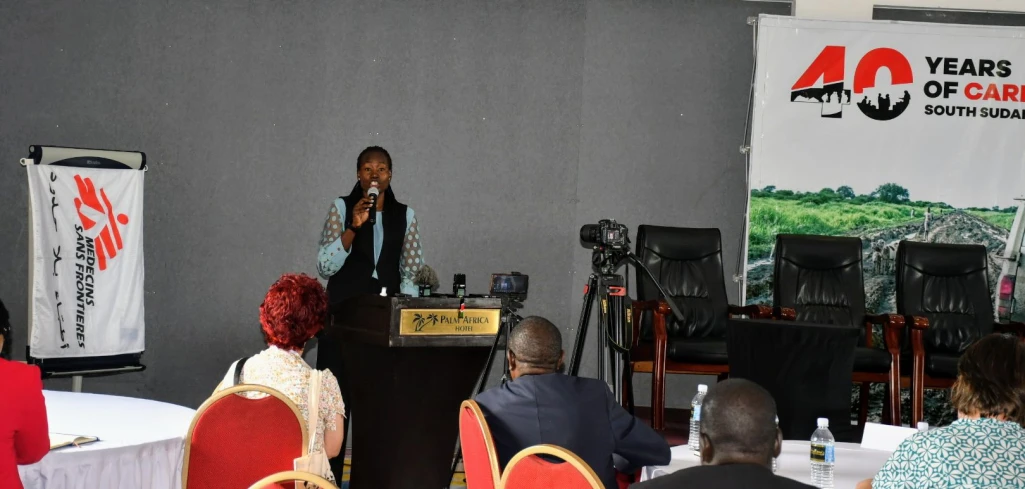
The Minister of Health as lauded Medecins Sans Frontieres (MSF) for providing healthcare services to the people of South Sudan for 40 years.
MSF is a is an international humanitarian organization that has been providing health care services to the people of South Sudan since 1983.
It operates 13 to 14 regular projects in eight states and two administrative areas of South Sudan, running primary healthcare services, and secondary healthcare services with response to various emergencies and disease outbreaks.
Addressing the event of the 40th anniversary on Wednesday in Juba, Yolanda Awel said the humanitarian organization has been ethical and impartial in providing health services across the country.
“MSF has distinguished itself through its neutrality and you are also super independent in what you do. This has allowed us to operate in the most volatile and contested regions together as a health sector because you come in to give lifesaving,” said Awel. “We cannot say enough thank you, but we will continue to work together.”
She said health group has demonstrated health principles that seek to serve everyone regardless of their status and earned it respect from all parties to the conflict in South Sudan and globally.
“MSF commitment to these principles has earned a respect and trust to all parties to conflict in South Sudan and around the world. You respond purely when you are needed and that is highly commendable,” she stated.
Speaking at the same event, MSF Country Representative to South Sudan, Mamman Mustapha, said his organization is committed to providing humanitarian support to the people of South Sudan.
“We are here acknowledging 40 years, we are here to highlight and demonstrate the humanitarian assistance, and the humanitarian support we are offering to the population of South Sudan in collaboration with our partners, donors, and stakeholders,” said Mustapha.
Awel assured MSF of government’s commitment to working with MSF and other partners address health challenges and improve the health of the South Sudanese regardless of where they come from.
However, the minister urges MSF and all the health partners to follow the government strategic plans to achieve sustainable development goals.
“I would like underscore this and I have said it in too many occasions and forums. For us to be effective as people working in the healthcare sector, we must coordinate, we must align and we must be on the same page through frequent communication,” she continued.
“We must re-align to the health sector strategic plan. That is the government guiding framework. You pick one portion out of it, re-align yourself to it and in that way, we are not wasting resources and time, and we will be hitting the SDGs goals.”
According to Awel, the strategic plan is summarized into three areas: “Localization, resilience and sustainability.”